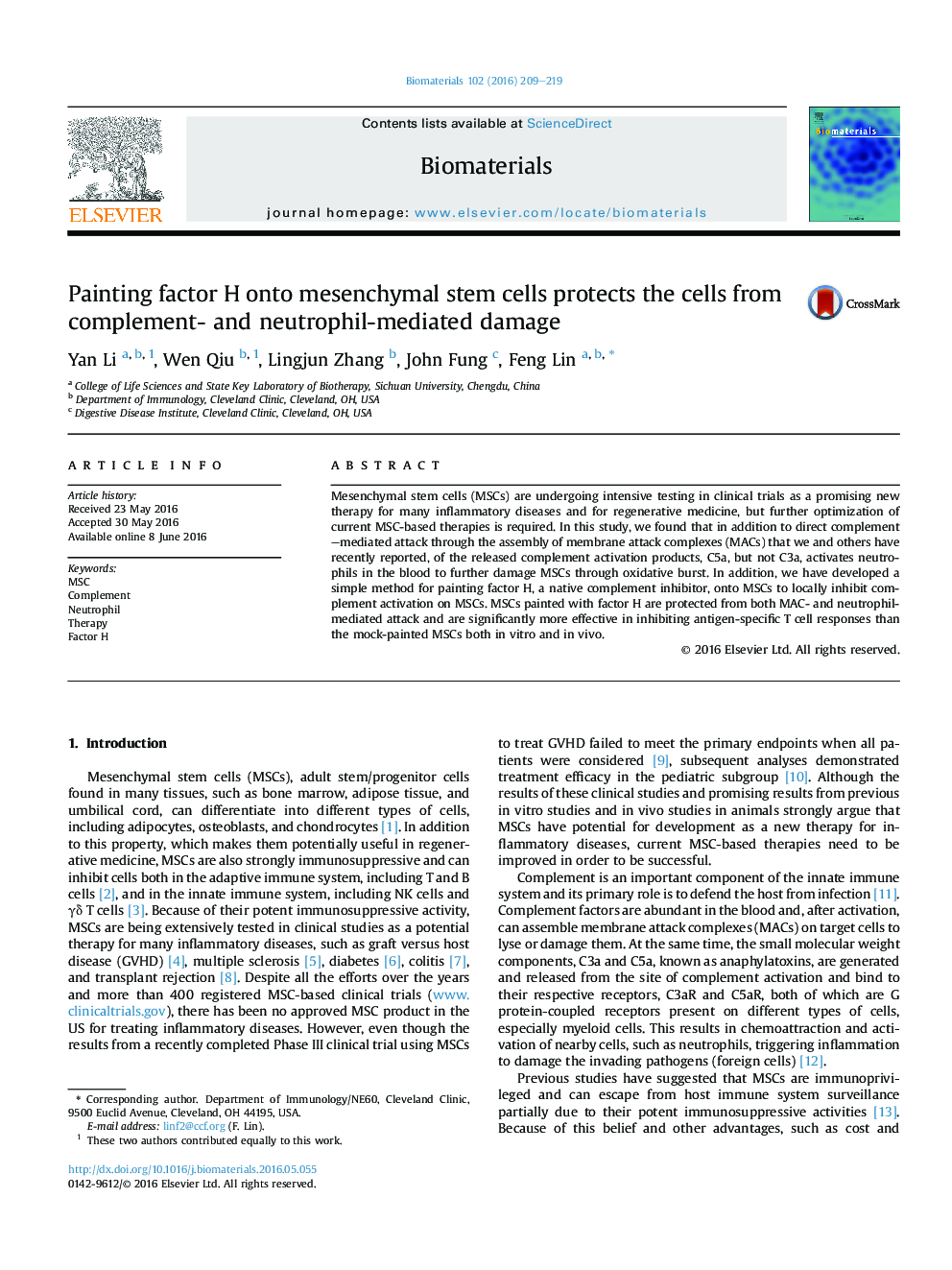| Article ID | Journal | Published Year | Pages | File Type |
|---|---|---|---|---|
| 5315 | Biomaterials | 2016 | 11 Pages |
Mesenchymal stem cells (MSCs) are undergoing intensive testing in clinical trials as a promising new therapy for many inflammatory diseases and for regenerative medicine, but further optimization of current MSC-based therapies is required. In this study, we found that in addition to direct complement–mediated attack through the assembly of membrane attack complexes (MACs) that we and others have recently reported, of the released complement activation products, C5a, but not C3a, activates neutrophils in the blood to further damage MSCs through oxidative burst. In addition, we have developed a simple method for painting factor H, a native complement inhibitor, onto MSCs to locally inhibit complement activation on MSCs. MSCs painted with factor H are protected from both MAC- and neutrophil-mediated attack and are significantly more effective in inhibiting antigen-specific T cell responses than the mock-painted MSCs both in vitro and in vivo.
